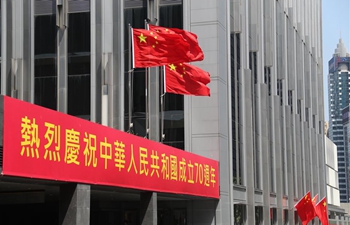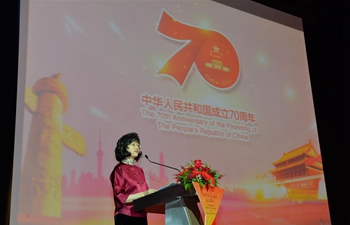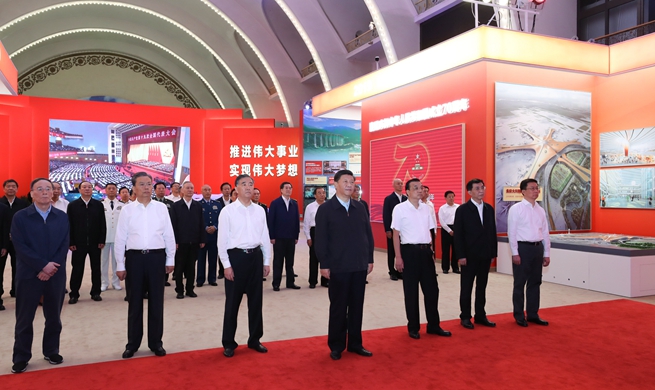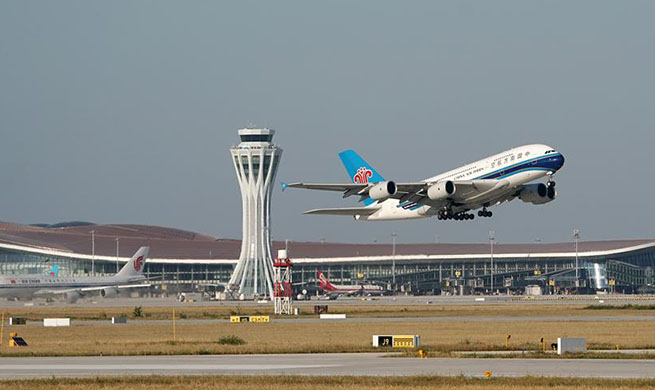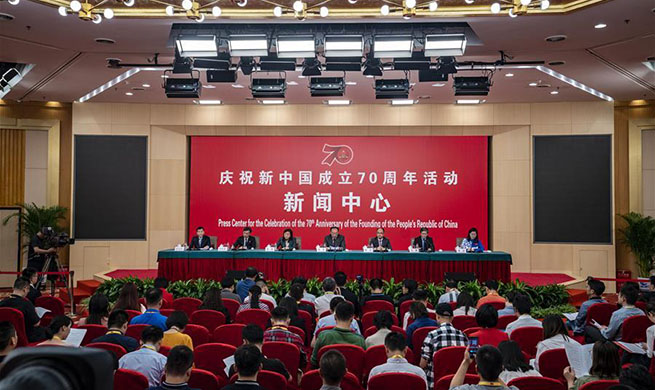BERLIN, Sept. 25 (Xinhua) -- Intellectual property rights strongly benefited the European economy, according to a joint study by the European Union Intellectual Property Office (EUIPO) and the European Patent Office (EPO) published in Munich on Wednesday.
The joint study revealed that between 2014 and 2016, 45 percent of Europe's gross domestic product (GDP), or 6.6 trillion euros (7.3 trillion U.S. dollars), was generated by industries that made "intensive use" of intellectual property rights (IPRs) such as patents, trademarks, industrial designs and copyright.
Industries that used intellectual property rights "play a crucial role in making the EU more prosperous and in securing its economic future," said Christian Archambeau, head of the EUIPO.
According to the study, these industry sectors accounted for 63 million jobs, which was 29 percent of all jobs offered in the EU. Furthermore, 21 million people were employed in sectors that supplied these patent heavy industries with goods and services.
"The importance of IPR-intensive industries reflects the strength of the knowledge-based economy in Europe," said EPO President Antonio Campinos.
Paying wages 47 percent higher than other industries, the IPR-intensive industries in Europe created an additional 1.3 million jobs during the period compared to the period between 2011 and 2013. At the same time, total European employment had declined slightly.
The European patent office stressed that industrial design had been a "job motor". In 2016, IPR-intensive industrial design companies had directly created 30.7 million jobs and generated a trade surplus of over 66 billion euros.
According to the study, Germany had the highest shares of patent-intensive employment and GDP, reflecting the "high share of manufacturing industries".
In Germany, one third of employees worked in industry branches with a strong use of patent rights, generating half of the country's GDP. The main protagonists in terms of patent applications in Germany were Siemens, Bosch, BASF, Continental and Bayer.
Iris Ploeger, member of the Federation of German Industries (BDI) executive board, said that Germany "must remain the leader in patent applications in Europe in the future", and emphasized the importance of infrastructure, energy costs and taxes.
In order to compete with Asia and America in the long term, Ploeger demanded that the German government should create better framework conditions, such as higher funding of artificial intelligence.

